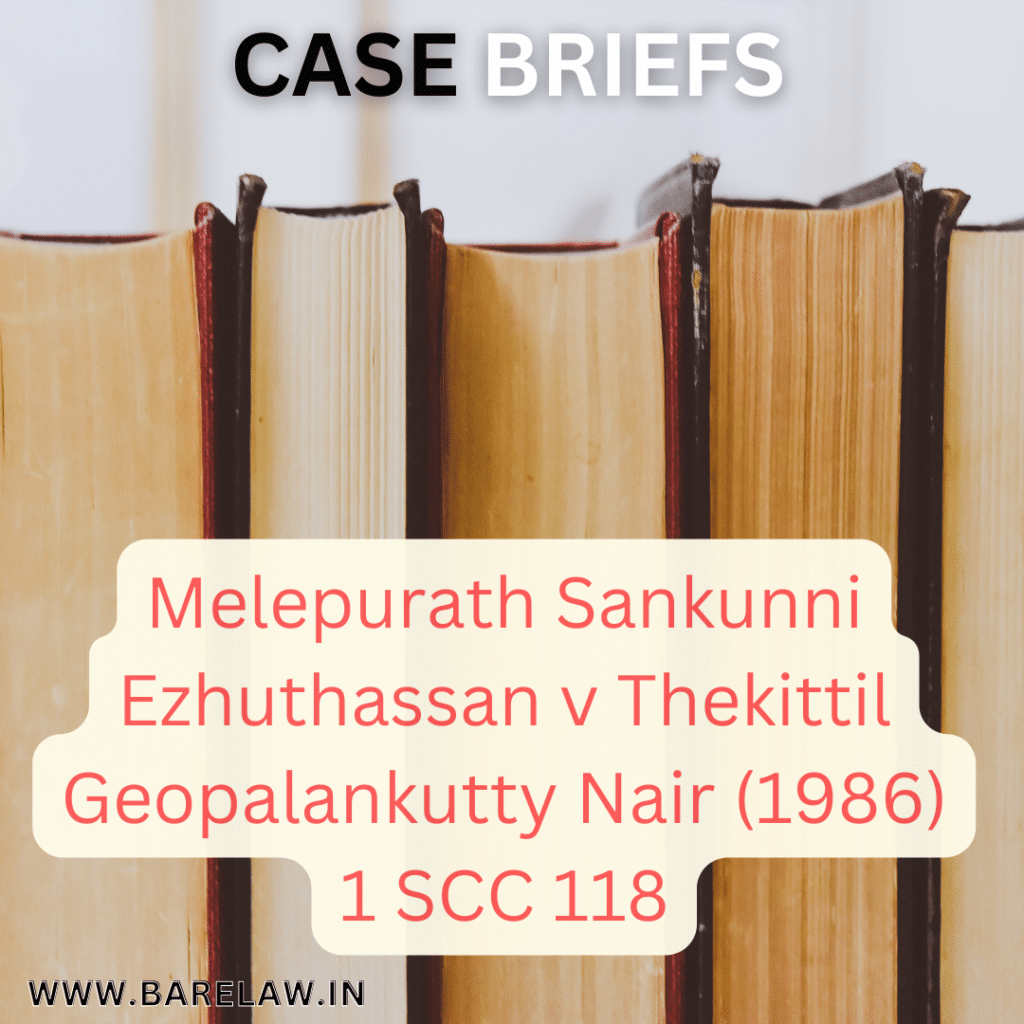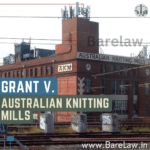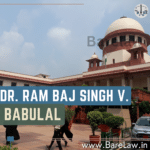
Melepurath Sankunni Ezhuthassan v Thekittil Geopalankutty Nair (1986) 1 SCC 118
| Case name | Melepurath Sankunni Ezhuthassan v. Thekittil Geopalankutty Nair |
| Year of Judgement | 1986 |
| Case Type | Civil appeal |
| Court | Supreme Court of India |
Brief gist: The case deals with the interpretation of the term “maintenance” in the context of Hindu law. The Supreme Court held that maintenance, in the context of Hindu law, refers only to the provision of basic necessities such as food, clothing, and shelter. The court observed that while a person who provides maintenance is entitled to be reimbursed for the expenses incurred, they do not acquire any interest in the property of the person they are providing maintenance to.
Details:
The case involved a dispute between two brothers, Melepurath Sankunni Ezhuthassan and Thekittil Geopalankutty Nair, over the maintenance of their mother. The mother had executed a registered will in favor of Sankunni, in which she had bequeathed her entire property to him. However, after her death, Geopalankutty filed a suit claiming that he was entitled to a share in the property as he was responsible for the maintenance of their mother during her lifetime.
The trial court ruled in favor of Geopalankutty, holding that he was entitled to a share in the property as he had provided maintenance to his mother. However, on appeal, the High Court set aside the trial court’s decision, holding that maintenance did not include any interest in the property.
The case eventually reached the Supreme Court of India, which held that maintenance, in the context of Hindu law, refers only to the provision of basic necessities such as food, clothing, and shelter. The court observed that while a person who provides maintenance is entitled to be reimbursed for the expenses incurred, they do not acquire any interest in the property of the person they are providing maintenance to.
In its ruling, the Supreme Court relied on the Hindu Adoptions and Maintenance Act, 1956, which defines maintenance as “such reasonable sum as is necessary to provide for the food, clothing, residence, education, and medical attendance and treatment of [a person]”. The court also noted that the concept of maintenance is intended to ensure that family members who are unable to support themselves are provided for, and is not meant to confer any proprietary rights on those who provide maintenance.
In conclusion, the Supreme Court upheld the High Court’s decision and dismissed Geopalankutty’s claim to a share in the property. The ruling has significant implications for the interpretation of Hindu law and the concept of maintenance in India.
Summary:
Melepurath Sankunni Ezhuthassan v. Thekittil Geopalankutty Nair is a landmark case in Indian law that deals with the interpretation of the term “maintenance” in the context of Hindu law.
The case involved a dispute between two brothers, Melepurath Sankunni Ezhuthassan and Thekittil Geopalankutty Nair, over the maintenance of their mother. The mother had executed a registered will in favor of Sankunni, in which she had bequeathed her entire property to him. However, after her death, Geopalankutty filed a suit claiming that he was entitled to a share in the property as he was responsible for the maintenance of their mother during her lifetime.
The trial court ruled in favor of Geopalankutty, holding that he was entitled to a share in the property as he had provided maintenance to his mother. However, on appeal, the High Court set aside the trial court’s decision, holding that maintenance did not include any interest in the property.
The case eventually reached the Supreme Court of India, which held that maintenance, in the context of Hindu law, refers only to the provision of basic necessities such as food, clothing, and shelter. The court observed that while a person who provides maintenance is entitled to be reimbursed for the expenses incurred, they do not acquire any interest in the property of the person they are providing maintenance to.
In its ruling, the Supreme Court relied on the Hindu Adoptions and Maintenance Act, 1956, which defines maintenance as “such reasonable sum as is necessary to provide for the food, clothing, residence, education, and medical attendance and treatment of [a person]”. The court also noted that the concept of maintenance is intended to ensure that family members who are unable to support themselves are provided for, and is not meant to confer any proprietary rights on those who provide maintenance.
In conclusion, the Supreme Court upheld the High Court’s decision and dismissed Geopalankutty’s claim to a share in the property. The ruling has significant implications for the interpretation of Hindu law and the concept of maintenance in India.





